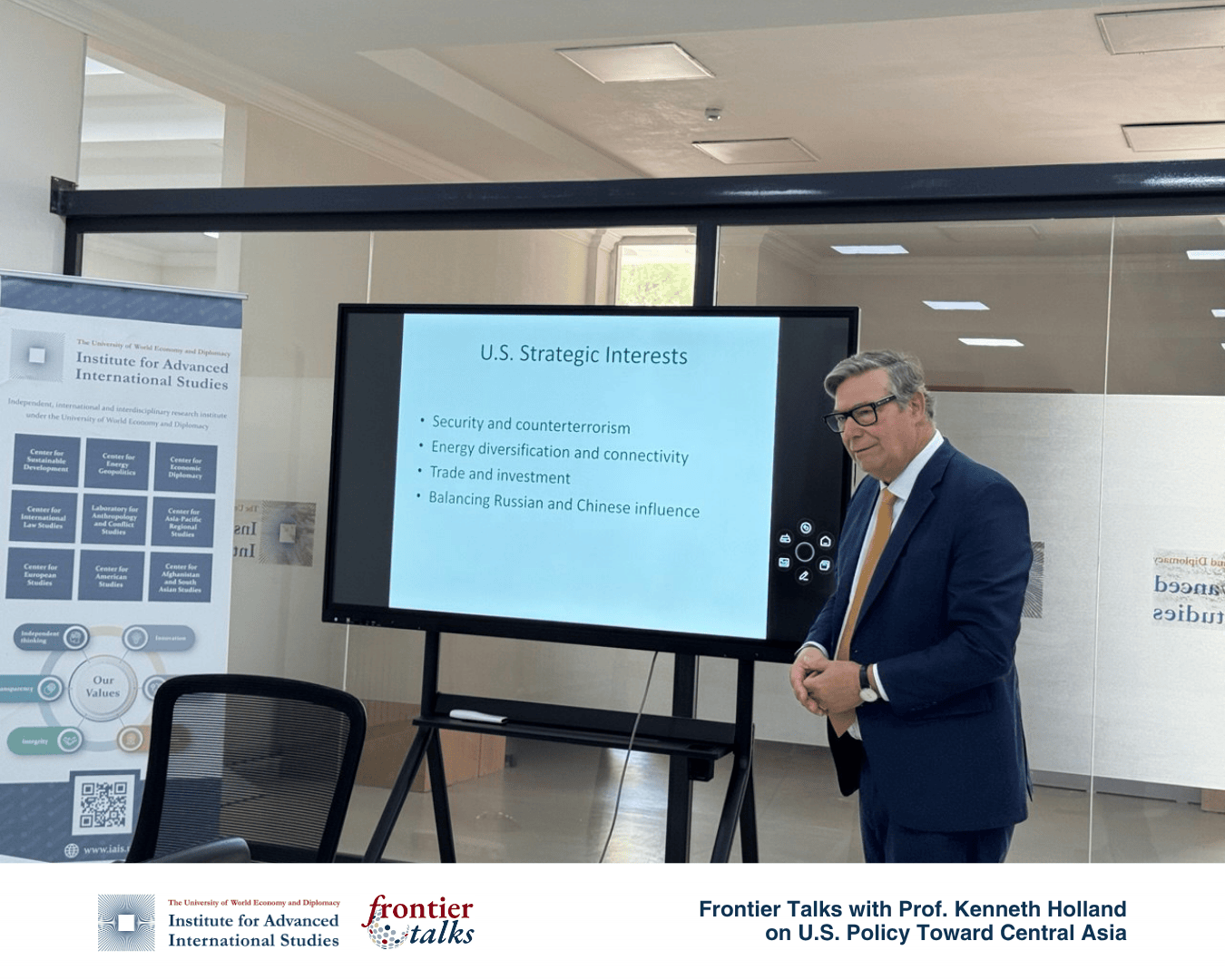
Affirming IAIS’s commitment to knowledge-sharing initiatives, we hosted a new session of Frontier Talks series on 3 October, featuring Professor Kenneth Holland, Fulbright Visiting Scholar at IAIS and a noted expert on U.S. foreign policy and international relations, who delivered a lecture on U.S. Policy toward Central Asia in an Age of Great Power Competition.
Professor Holland traced the trajectory of Washington’s engagement with the region from the early post-Soviet period through the Afghanistan drawdown and into the current phase of intensified geopolitical rivalry. He examined how the United States calibrates its soft-power instruments, targeted security cooperation and economic initiatives amid Russia’s entrenched political-security footprint and China’s rapidly expanding trade, investment, and connectivity projects. In this context, he assessed the utility and limits of formats such as the C5+1, highlighting areas where cooperative projects can yield tangible benefits.
A substantial portion of the lecture was devoted to the strategic implications of the war in Ukraine for Central Asian states’ multi-vector diplomacy. Professor Holland argued that hedging strategies will likely persist, but emphasised that predictable, results-oriented engagement with the United States depends on credible pathways for private investment, rule-of-law reforms, transparent procurement and higher-education partnerships that build human capital. He also touched upon climate and water security, the green transition, digital governance and technology transfer as domains where U.S.–regional cooperation could scale without provoking zero-sum competition.
The discussion further explored how regional governments can diversify trade and logistics routes, strengthen regulatory convergence, and expand academic exchange to support skills development. Participants reflected on the future of U.S.–Central Asia relations in light of shifting global supply chains, sanctions environments and the need to insulate social sectors from external shocks. Throughout, Professor Holland stressed that durable progress rests on institution-building at home and pragmatic, issue-based cooperation abroad.
A lively question-and-answer session followed, engaging topics from energy market volatility and critical raw materials to cybersecurity, vocational training and the role of think tanks in policy design. The exchange highlighted the value of evidence-based dialogue between academia and policymakers, and reinforced the Frontier Talks series as a space for rigorous yet practical debate.